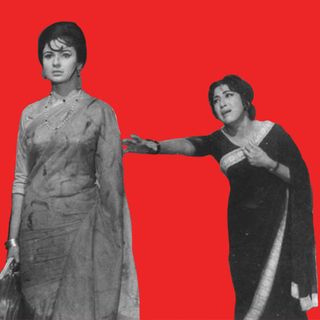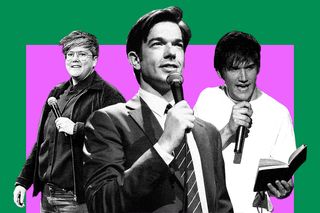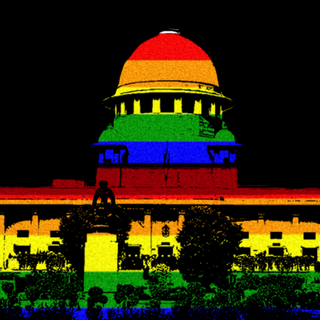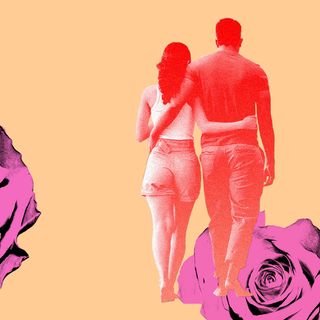
The Era of Vulnerability Comedy Is Here
Vulnerability comedy doesn’t punch down. It doesn’t punch up either. It rejects punching – instead, it pulls back the curtains and heals.

“I don’t drink. I used to drink, then I drank too much, and I had to stop,” Mulaney said during his special New in Town in 2012. “That surprises a lot of audiences because I don’t look like someone who used to do anything.”
With Baby J, Mulaney made his comeback into stand-up comedy, after a hiatus of almost three years. Decked in his standard three-piece suit and boyish charm, he deconstructed his fame, the ‘likeable’ personality he built over the decade, and looked inward at the terrible ramifications of parasocial relationships informing his relationship with himself. Although the humor and rhythm is reminiscent of his past shows, he makes it clear that this special will not be like his previous ones, as he opens himself up to public scrutiny. Baby J thus comes with a disclaimer – “If you’ve seen me do stand-up before, I have kind of a different vibe now”
With a debilitating history of alcohol and drug abuse, Mulaney’s personal life took a toll in the last few years. He was in-and-out rehab runs, went through a very public divorce, and became a parent with someone else. All of these events became public spectacles unto themselves, as they contrasted with the squeaky clean, polished image he had built as a comic. A huge chunk of Mulaney’s appeal relied on his kid-friendly comedy, his image as the Internet’s boyfriend, as well as a ‘wife guy’ , and the beloved personality he constructed around his dog. Although he has previously discussed his past experiences with substance abuse openly, the pandemic hurled him into a relapse that severely impacted his health, as well as subjected him to a public debacle.
Recounting the intervention held by his close friends, and the arrogance he displayed at the time, (‘How dare they trick him into thinking he was getting dinner? Why, in a room of the 12 funniest people he knows, was no one being funny?’) Mulaney drives home the point that he has made irreconcilable mistakes, and can be a jerk – even at the cost of his own carefully crafted reputation. This was not an attempt at seeking redemption, but rather a long drawn confession.
Comedy is essentially a performance, with very calculated sets and punch-lines that gauge the reaction the comic wishes from their audiences. Humor has varying subsets, and while some comics choose to focus on external situations – and people (read: Dave Chappele, Ricky Gervais taking aim at trans people and social justice warriors) – as the butt of the joke, the most popular comedy today is a dissection of the self on stage, trauma is transacted for laughter. In this moment of vulnerability and self-awareness, a connection is cemented between the comic and their audience. Although this may seem as though grief is commodified, there is a certain cathartic sentiment attached to suffering that’s relatable and endured through laughter and levity.
Related on The Swaddle:
Ricky Gervais’ Special Shows How Edginess in Comedy Becomes a Front for Bigotry
Confessional comedy isn’t new. But what makes the return to it more significant is the fact that it’s at a time when the discourse has pit political correctness against humor – at the expense of soul-searching and empathy.
At several inflection points, celebrities, comics, influencers and practically everyone under the limelight has caught flack for inappropriate comments, their political stances, and resurfaced tweets. Where some people see cancel culture as an onus for accountability and growth, many others see it as a censor. In the field of comedy, the enclosed stage is hailed as a free speech zone, where humor supersedes morals, and within these four walls, cancel culture is irretrievably canceled. Today, although obscenity laws are retracted, social media still persists as the torchbearer of surveillance – at least according to many comics who are active today.
Mulaney (who himself platformed Dave Chappele despite controversy around his transphobia) seems to have understood this trap now. There’s no hiding from oneself, or even shielding oneself, when things hit rock-bottom. “Lower those masks, you know what I mean. We all quarantined. We all went to rehab and we all got divorced. And now our reputation is different … likability is a jail.”
Bo Burnham’s (whom Mulaney cited as the more liked, less “problematic” comedian for the kids now) Inside was one such performance, but what made it resonate was that it was simultaneously also his only way to get through the toll that the isolation of the pandemic took on him. And through his chaotic yet catatonic video diary, he exposed himself to the world, a little scuffled, a little claustrophobic, but ultimately unflinchingly honest. Through sing-alongs and puppets, he speaks of his panic attacks, the performativity of art, and the longing for human contact. Above all, he spoke to the imperative of feeding algorithmic overlords with relatable, likeable, and easily digestible content: “Look, I made you some content. Daddy made you your favorite, open wide.”
But looking within and being honest about dark experiences is, by default, not digestible – and opening up about this trap also opened the floodgates in audiences who thus far were missing authenticity in the content-comedy that prevailed in the zeitgeist.
However he still does not let us forget that at the end of day – this is content. The honesty – commodified, edited, tactfully written, for an audience. Yet, this does not draw away from the comfort his sketch provided in a phase where the light at the end of the tunnel felt tragically dim. If we can’t escape the walls of contentification, might as well break the fourth wall about it. An article from NPR describes the Burnham experience as a visual representation of ‘what the inside of my head felt like for a year.’
Hannah Gadsby, an Australian comic, presented ‘Nanette’ as a deviation from her usual sets, and created a masterpiece that is almost too painful to get through. Gadsby is revered by a very specific subset of people – liberal, cis and queer women (of color), and yet this stand-up cut through the hearts of everyone who witnessed her rage on-stage, or through the screen. “Artists don’t invent zeitgeists,” Gadsby says. “They respond to it.” – thus revealing the congenial nature of comedy as a reaction to the sociopolitical state of the world. Dismembering sexism, homophobia, sexual assault, and our inherently gendered perspectives, Gadsby strips herself bare for the world to see, and all eyes really are on her. “[Gadsby] wields her craft like a weapon, lancing out the trauma and forcing us to look at it. She can’t undo her trauma – none of us can undo our trauma – but she can live with it, grow with it,” states a piece from The Guardian.
It was anti-comedy – where the premise of even laughing at one’s own expense was challenged. What, or whom, do we laugh at at all? Is anything really funny anymore? Turns out, yes – the world is a damn funny place when we’re laughing not at our trauma, but with it. At multiple low points in the past few years, I have crawled back into the comfort of rewatching Daniel Sloss’ ‘Jigsaw’, a stand-up that is brutal in its critique of relationships. Every break-up, every situationship that fizzled away, and every heartbreak has brought me back to his jigsaw analogy. “My generation has romanticized the idea of romance, and it is cancerous. People are more in love with the idea of love than the person they are with.” He criticizes the unrealistic romantic expectations we set for ourselves, and how the media reaffirms the same by feeding love down our throats.
Clearly, it’s therapeutic for us too. A CNN article makes an observation about the sad clown paradox – “The material that comes from a counselor’s couch often makes great fodder for a comic’s act. The men and women who make people laugh for a living often struggle with mental health challenges offstage that are hardly a laughing matter.”
Vulnerability comedy, then, shows that it’s still possible to hold a mirror up to the world and recognize its wrinkles and cracks while mediating the humor through one’s own experiences. Unlike the edgy, anti-woke brand of humor that’s come to be a response to demands for comedy to be empathetic, vulnerability comedy doesn’t punch down. It doesn’t punch up either. It rejects punching at all – instead, it pulls back the curtains and heals. Vulnerability comedy is essentially a retrospection.Fame and reverence has an evil underbelly – one that opens up a person’s insecurities for public speculation. But as the recent slate of honest comedy specials show, this can also be a good thing – it provides an opportunity to combat this perception, and set oneself free.
Hetvi is an enthusiast of pop culture and all things literary. Her writing is at the convergence of gender, economics, technology and cultural criticism. You can find her at @hetviii.k.
Related


The Marriage Equality Hearings: Week 2
